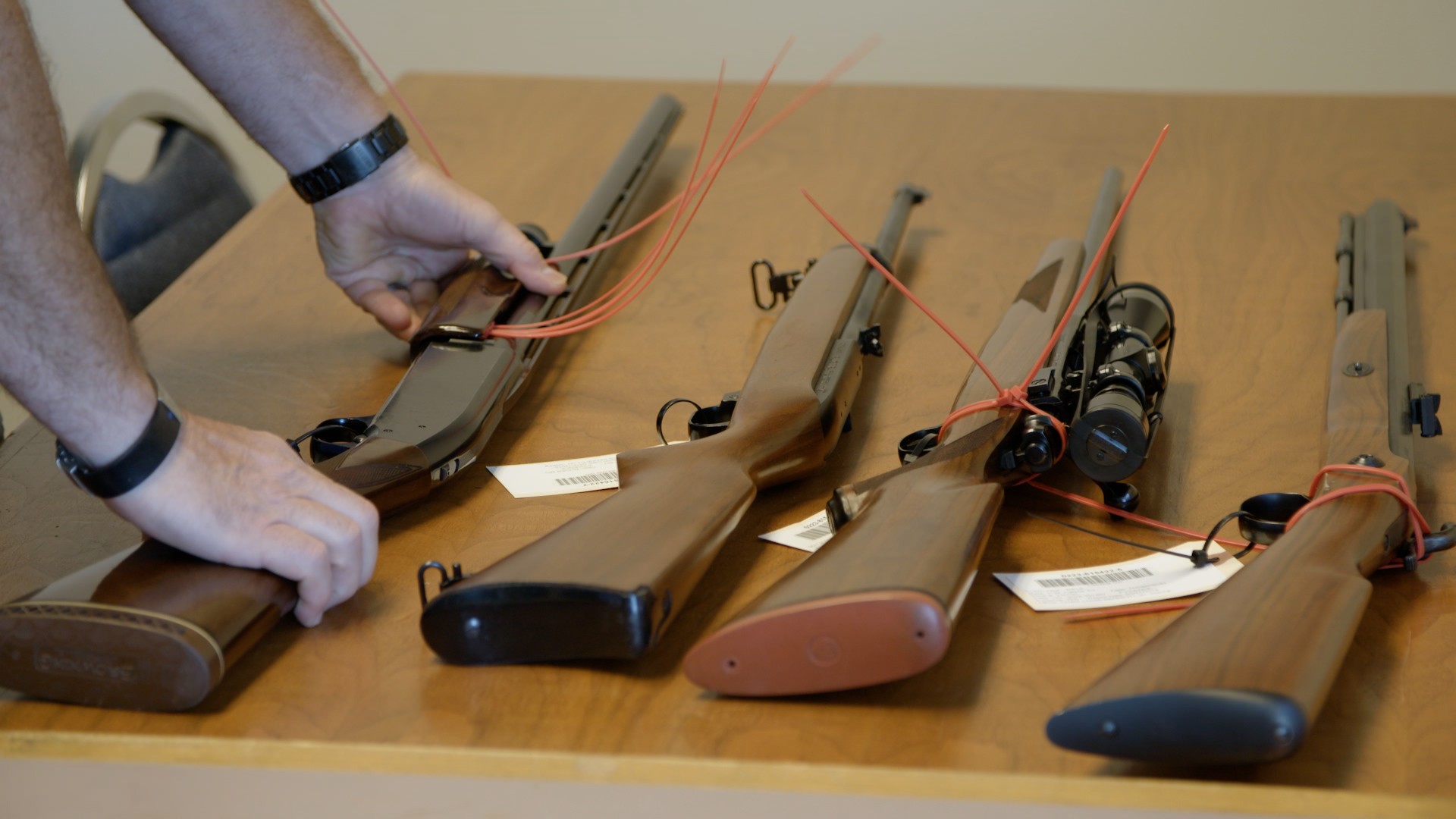An estimated tens of thousands of Americans buy guns each year without ever filling out a single piece of paperwork or passing a background check.The man who went on a shooting spree along a highway in West Texas, leaving seven dead and 22 wounded, was one of them.The gunman, 36-year-old Seth Ator, tried to buy a gun through a licensed dealer in 2014 but failed the required federal background check. So he took a different route — one that’s entirely legal under federal and Texas law. He purchased his AR-style rifle through a private vendor.The fact he was able to do this, despite being disqualified from purchasing a gun through a licensed dealer, has thrust the “private sale loophole” into the national spotlight.“There’s no reliable data to know exactly how many of these gun sales occur through the private sale loophole without a background check,” said Adam Winkler, professor at UCLA School of Law and author of “Gunfight: The Battle Over the Right to Bear Arms in America.”READ: It's now or never for gun control in CongressA 2017 study by Harvard and Northeastern universities found that one in five American gun owners got their firearm without undergoing a background check. The same study found 22 percent of 4,000 adults surveyed who owned guns hadn’t undergone a background check.A 2018 study by Everytown for Gun Safety, one of the major gun control advocacy groups, counted 1.2 million ads for guns on armslist.com, a popular online hub for private gun vendors. None of those guns would require a background check for purchase.“The gun industry profits whether they’re selling to a law-abiding person or someone who shouldn’t have a gun,“ said David Chipman, a retired ATF agent and senior policy adviser at Giffords, an organization advocating against gun violence.What’s more: it creates an enormous headache for law enforcement, who have a hard enough time tracing guns recovered at crime scenes when they were purchased with a federal background check.“This is what I dealt with for 25 years,” said Chipman. “It puts law enforcement on their heels, where we’re spending all our time solving crimes instead of preventing them from occurring in the first place.”READ: Did the assault weapons ban really work? That's complicated.Federal background checks are now required at licensed vendors such as Walmart, local gun stores, or even gun manufacturers who set up shop at events like the annual NRA convention. Under federal law, anyone who purchases a gun through a licensed vendor is automatically subject to a background check.A prospective gun buyer’s name is run through the National Instant Criminal Background Check System to make sure they don’t have something disqualifying in their history, like a previous felony conviction, a documented history of drug use, or involuntary commitment to a psychiatric hospital.The background check takes three days, and after that period has lapsed, the firearm is released to the buyer regardless of whether it’s approved or not (the House passed a bill earlier this year to extend the waiting period to ten days, after which the buyer can request an “expedited review” which would give the FBI another ten days to complete the sale).But it’s the Wild West when it comes to private gun sales, often arranged through classified ads on sites like ammoland.com or armslist.com in the 12 states (plus D.C.) without state universal background check laws on the books.READ: Walmart is ending the sale of most ammo and would like you to leave your guns at homeIt may be as simple as meeting up in a parking lot, handing over cash, and walking away with your new gun. There is no federal law that requires those vendors to keep records of sales, so it’s hard to know exactly how many guns are bought this way each year.After the 2012 shooting at Sandy Hook Elementary School left 26 dead, including 20 young children, former President Barack Obama tried to push through legislation to make background checks mandatory for all gun purchases. The bill didn’t make it through the Senate.Today, the idea of universal background checks enjoys broad public support. A poll earlier this year by Quinnipiac University found that 94% of Americans were in favor: 98% of Democrats, and 92% of Republicans.The gun lobby, led by the NRA, has argued that universal background checks would prevent law-abiding gun owners from lending their weapons to friends or family for hunting trips, and open up a Pandora’s Box for additional gun control measures.It’s possible that the Odessa shooting could be the tragedy that changes things. Texas’ GOP Gov. Greg Abbott, a vocal gun rights advocate, said at a press conference after the shooting that he was “tired of the dying.”“The status quo in Texas is unacceptable and action is needed,” Abbott said. ““We need solutions that will keep guns out of the hands of people like the killer in Odessa while also ensuring we safeguard Second Amendment rights and we must do it fast.”Abbott is yet to call for a specific gun control measure, and Winkler is skeptical about whether he will.“We’ve seen this moment come and pass before,” said Winkler. “Just last year, after Parkland, Trump called for comprehensive gun reform, and then dropped the issue quietly. These mass shootings create the momentum for reform, but the NRA’s barriers have been successful in stopping it.’In February, the newly-Democrat controlled House passed a bill by 240 to 190 in favor of creating universal background checks on gun sales. The legislation is now with the Senate, which is controlled by the GOP, for consideration. If the Senate approves it, President Donald Trump will have the opportunity to sign or veto it. Cover: MICHELE EVE SANDBERG/AFP/Getty Images
Cover: MICHELE EVE SANDBERG/AFP/Getty Images
Advertisement
Law enforcement headache
Advertisement
Wild west for private sales
Advertisement
“There’s not much truth to that at all,” said Winkler. “The idea was to stop people transferring ownership for guns, not temporary possession during a weekend getaway.”
After Odessa
